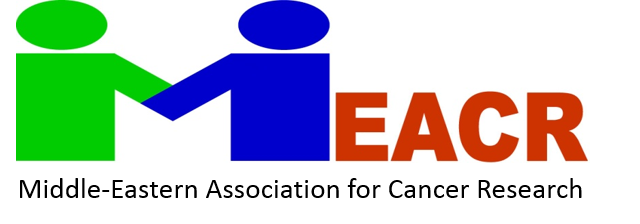


 |
 |
 |
Sir,
The increase in levels of pro-inflammatory cytokines is associated with undesirable health consequences and psychological stress among patients with breast cancer. There have been several reports regarding the production of pro-inflammatory cytokines induced by psychological stress,[1] which may have severe health consequences among patients with breast cancer.[2] Mehr et al. found significant changes in the levels of pro-inflammatory cytokines among patients with breast cancer that received the spiritual intervention and nonpsychological exercise in comparison to the group that did not receive the intervention.[3] However, there was no stated evident biological mechanism underlying the anti-inflammatory effects produced by spiritual intervention in the study. Moreover, there was no substantial evidence regarding the association between psychological, neuroendocrine, and immunological variables in the study. Therefore, the results of the study conducted by Mehr et al.[3] should be interpreted with caution, and thorough investigations are needed to unravel the possible psychoneuroimmunological mechanisms underlying the mitigating effects of spiritual intervention on pro-inflammatory cytokines among patients with breast cancer. Nevertheless, from the outcome of the systematic review conducted by Moraes et al. spiritual practice and meditation is an important adjunct therapy for patients with cancer, who are undergoing treatment (radiotherapy and chemotherapy).[4] Moreover, several studies showed that consistent engagement in mind-body exercises such as Tai chi, Qigong, yoga, and meditation reduces genomic markers of inflammation.[5] The psychoneuroendocrinoimmunologic interaction elicited by yoga and meditation therapies may be linked to the activation of different neural areas that control downstream stress response pathways, including the autonomic nervous system (ANS) and the hypothalamic-pituitary–adrenal (HPA) axis.[5] The ANS and the HPA axis may affect the synthesis of pro-inflammatory cytokines via the special effects of their ligands on adrenergic, and cholinergic receptors, and on the activation of glucocorticoid receptors (GR) which exerts an effect on immune cells.[5] Moreover, the activation of adrenergic receptors by adrenaline and noradrenaline can trigger pro-inflammatory transcription factors mostly the nuclear factor kappa B (NF-κB), while the activation of GR might hinder pro-inflammatory cytokine synthesis.[5] The results of several trials on mind-body therapies revealed decreased pro-inflammatory signaling through NF-κB, and improved anti-inflammatory GR signaling, suggesting that mind-body therapies may possibly regulate gene expression to decrease inflammation.[5] These pathways could be associated with the biological mechanisms underlying the anti-inflammatory effects of spiritual intervention and non-psychological training in patients with breast cancer. The spiritual struggle was correlated with an increase in plasma Interleukin-6 levels among patients undergoing cardiac surgery, in which a spiritual intervention may be essential to reduce the pro-inflammatory cytokine.[6]
In conclusion, spiritual intervention may decrease pro-inflammatory cytokines and may perhaps improve the mental and spiritual health among patients with breast cancer. However, more clinical trials are required to examine the impact of the spiritual intervention on psychoneuroimmunological mechanisms with a special focus on the neuroendocrine stress response pathways using advanced functional magnetic resonance imaging and essential laboratory tools and biomarkers.
Financial support and sponsorship
Nil.
Conflicts of interest
There are no conflicts of interest.
Marsland AL, Walsh C, Lockwood K, John-Henderson NA. The effects of acute psychological stress on circulating and stimulated inflammatory markers: A systematic review and meta-analysis. Brain Behav Immun 2017;64:208-19.
Kruk J, Aboul-Enein BH, Bernstein J, Gronostaj M. Psychological stress and cellular aging in cancer: A meta-analysis. Oxid Med Cell Longev 2019;2019:1270397.
Mehr SS, Pornour M, Movafagh A, Akbari ME, Vaziri S, Pourtoloei H, et al. The effect of spiritual intervention on the concentration of interleukin-1β, interleukin-6, interleukin-8 and tumor necrosis factor alpha cytokines in patients with breast cancer: A pretest–posttest experimental study. Clin Cancer Investig J 2020;9:249-57.
Moraes LJ, Miranda MB, Loures LF, Mainieri AG, Mármora CH. A systematic review of psychoneuroimmunology-based interventions. Psychol Health Med 2018;23:635-52.
Bower JE, Irwin MR. Mind-body therapies and control of inflammatory biology: A descriptive review. Brain Behav Immun 2016;51:1-11.
Ai AL, Seymour EM, Tice TN, Kronfol Z, Bolling SF. Spiritual struggle related to plasma interleukin-6 prior to cardiac surgery. Psychol Relig Spiritual 2009;1:112-28.
|
||||||||